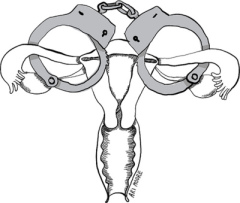
Paige Welch, Staff Writer |
On Wednesday, February 15 SUNY Oneonta’s Women’s and Gender Studies Department organized a visit from Dr. Marc Heller and his wife Christine Heller. Both are avid women’s reproductive rights activists and Dr. Heller works at Planned Parenthood where, according to his bio, he performed over 14,000 abortions during his medical career. The lecture took place at the Center of Multicultural Experiences (Lee Hall) in the Great Room.
Christine Heller began the talk by revealing a past experience of when she had undergone an abortion procedure in 1972 after her method of birth control failed. She said that back then, the political climate treated abortion and other such reproductive issues much differently than it does now. In the state of New York, it was legal to get an abortion at that time and she does not remember it being an issue that was stigmatized by media portrayals organized by pro-life activists.
When talking about the operation she underwent, she said, “It was a decision based on us as a couple…I made the decision and Marc and I talked about it.”
Dr. Heller’s main focus was on the various stories he has heard and collected throughout his long career as an OBGYN. He gets asked a lot about why he would be interested in that specialization as a man, and why he would willingly performed abortions. To this, he said that he had seen cycles of insufficient childcare perpetuated by mothers having children when they were not ready to take on that responsibility. He used to work at Bassett Hospital in Cooperstown, but claimed that he left that specific institution because his coworkers were “mean to his patients,” following the statement with a story of a women who had just gone through an abortive surgery.
She was writhing in pain and called out “Is God punishing me?” to which the nurse supposedly replied, “Yes, he is.”
It was this kind of hostility that led Marc to relocate to a Planned Parenthood center in Utica. Here, Marc learned how vital of a service it was to urban communities.
But having Dr. Heller’s job is dangerous in today’s society: “You have the skill, you see the need. So I say no or do I say yes? So I said yes. But there were a lot of risks. We had bomb threats at Planned Parenthood, we had violent protesters.”
The Heller’s put curtains up after hearing about another doctor that had been shot and killed through his kitchen window. Such violent actions really show how politicized the talk of abortion has become and how personal people have made it regardless of their own experiences or backgrounds. The worst part for Dr. Heller was when women would own their guilt.
They would tell him things like: “I feel dirty” or “I’m so ashamed.”
Media, with the help of the pro-life movement since the 70s, has warped how the public views abortion so that the women who undergo the procedures come out looking reckless and shameful.
Another Oneonta student who attended the lecture on Wednesday explained her feelings about abortion. First, she mentioned the fact that she had seen the Heller’s speak before at political rallies so she was expecting “the intensity of his work,” but still found herself to be uncomfortable as he retold very intense experiences: “As a person who empathizes heavily with others, during the moments when he described the bodies and conditions of the people he treated, I felt extremely uncomfortable because I could physically put myself into their positions and their pain.”
But, discomfort is sometimes a necessary consequence of having important conversations. The event was a good way of starting dialogue on campus, and to emphasize the importance of listening to the pain of others before forming a political opinion about such a subjective topic.
Leave a Reply